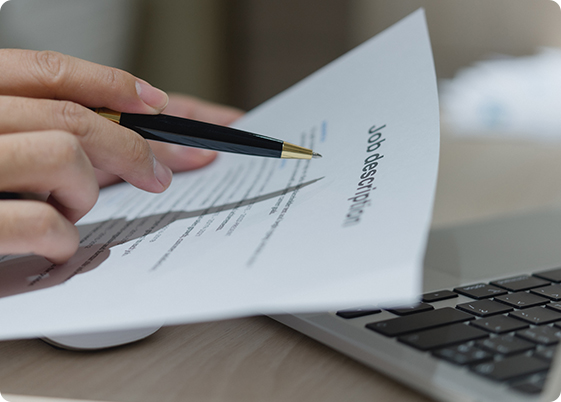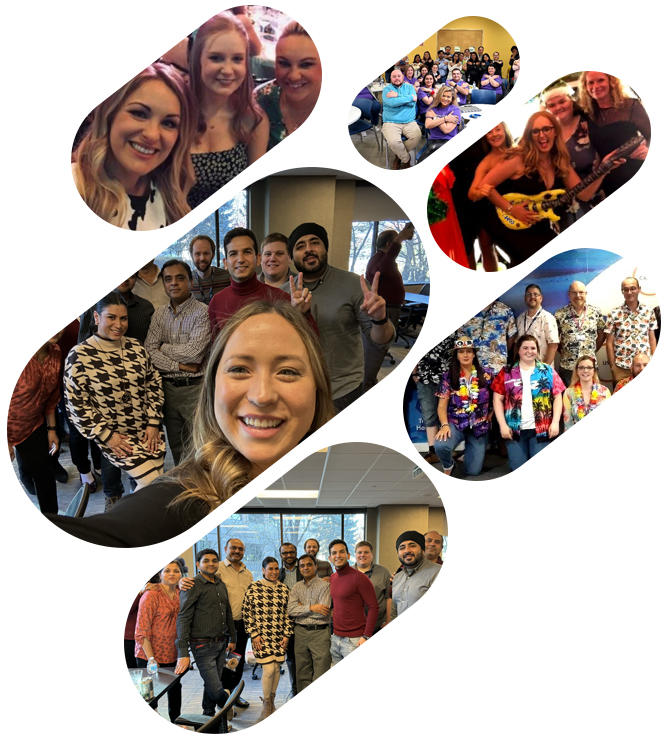
Phone interviews are often the first step in most hiring processes, especially for entry-level and customer-facing roles. While they may seem informal compared to in-person meetings, they play a crucial role in determining whether you progress to the next stage. Knowing how to ace a phone interview, communicate effectively, and leave a positive impression can significantly boost your chances of moving forward.
In this guide, we’ll share practical phone interview tips and essential phone job interview tips to help you make the right impression and confidently navigate your next phone call interview.
Why Phone Interviews Matter?
Phone interviews allow employers to assess your communication skills, professionalism, and cultural fit before inviting you for a face-to-face or video interview. In the UK job market, where many companies receive hundreds of applications per role, this step helps recruiters quickly shortlist candidates who demonstrate readiness and enthusiasm.
A well-handled phone interview can open doors to exciting opportunities, whether you’re exploring customer advisor jobs, sales positions, or roles in administrative and IT support. So, to get the answer for “how do I prepare for a phone interview,” follow the right strategies.

Pre-Interview Prep: Setting the Stage for Success
Even though you’re not meeting your interviewer in person, telephone interview tips are just as necessary. Here’s how to prepare for a phone interview.
Research the Company
Before your interview, learn about the company’s mission, products, and values. Visit their website, read recent news articles, and check their social media presence. This research shows genuine interest and helps you tailor your responses when discussing why you want to work there.

Review the Job Description
Read the job posting carefully to understand the required skills and responsibilities. Note the key phrases or qualifications mentioned, such as “excellent communication,” “problem-solving,” or “team collaboration.” This step ensures you can highlight how your experience and strengths align with what the employer needs.
Create the Right Environment for Success
Choose a quiet, comfortable space where you won’t be disturbed. Keep a glass of water nearby, along with your CV, the job description, and a notepad for taking notes. Turn off notifications on your phone and computer to avoid distractions. Clear surroundings help you stay focused and calm
Top Strategies for Acing Your Phone Interview
Once you’re well-prepared, it’s time to learn phone call interview tips that make a strong impression and demonstrate confidence. Here is how to do a phone interview with confidence.

Master Your Communication Skills
Since the interviewer can’t see your body language, your voice becomes your most powerful tool. Speak clearly, at a moderate pace, and with positive energy. Smile while talking — it naturally makes your tone sound friendlier and more confident.
Be Ready for Behavioural and Situational Questions
Many recruiters use the STAR method (Situation, Task, Action, Result) to evaluate how you’ve handled challenges in the past. Be prepared with examples that highlight your teamwork, leadership, or problem-solving skills. For instance, explain how you handled a demanding customer or resolved a technical issue effectively.
Know the Company and the Role Inside-Out
Demonstrating knowledge of the company’s services and culture helps you stand out. Mention recent company achievements or industry trends. For example, if you’re applying for call centre career growth roles, you could say, “I understand your company has recently expanded its digital customer service platforms, and I’m excited about contributing to that transformation.”
Prepare for Job-Specific Technical Questions
Depending on the role, you might be asked technical or role-specific questions. For instance, an IT support candidate may need to describe troubleshooting steps, while a customer advisor may be tested on conflict resolution. Review common questions related to your field and prepare concise, structured answers.
Answering Questions with Impact
When answering phone interview questions, structure your responses clearly. Begin with a brief overview, provide an example, and conclude with a positive result or lesson learned. Avoid going off-topic or speaking for too long. Clarity and relevance are key.

Prepare to Discuss Your Remote Work Experience
With many UK employers now offering hybrid or remote roles, interviewers often ask about remote work experience. Even if you haven’t worked remotely before, discuss your ability to stay organised, communicate proactively, and manage time effectively.
Ask Intelligent Questions
At the end of the call, you’ll usually be invited to ask questions. Use this opportunity to show curiosity and initiative. Examples include
- “How would you describe the team culture?”
- “What are the key goals for this role in the first six months?”
- “How does your company support employee development and career progression?”
Understanding how to build an ATS-friendly resume means balancing clarity, structure, and relevance.
Follow-Up with Confidence
After the interview, send a short thank-you email within 24 hours. Express appreciation for the opportunity and briefly restate your enthusiasm for the role. This professional touch leaves a lasting impression and reinforces your interest in the matter.
Common Mistakes to Avoid During Phone Interviews
While enthusiasm is great, certain behaviours can reduce your chances of advancing. Here is some practical advice for a phone interview, along with common phone interview mistakes to avoid.
Speaking Too Quickly or Too Slowly
Rushing your answers may make you seem nervous, while speaking too slowly can reduce engagement. Aim for a balanced, confident tone and pace.
Failing to Listen Actively
Active listening is an essential skill, even during a pre-recorded video interview, which is the stage most agent-level candidates at HGS UK complete before the final round. It is important to carefully read or listen to each question prompt before recording your response. Take a moment to organise your thoughts so your answers are clear, relevant, and complete.
Talking Over the Interviewer
Interrupting can appear impolite, even unintentionally. Let the interviewer finish speaking before you respond. Small pauses show attentiveness and respect.
Being Too Casual or Informal
Avoid slang or overly casual language. Maintain a friendly yet professional tone, just as you would in a face-to-face interview.
Conclusion
A phone interview is your first opportunity to showcase your communication skills, confidence, and enthusiasm. So, when wondering, “How do you ace a phone interview?”, know that it requires preparation, focus, the right strategy, and the best advice for phone interviews.
Whether you’re pursuing customer advisor jobs or exploring other opportunities in the UK, applying these techniques will help you when preparing for a phone interview.
At HGS UK, we believe in empowering professionals with the right tools and knowledge to achieve career success. From providing LinkedIn profile tips and interview preparation tips to supporting call centre career growth, we encourage candidates to develop the confidence and communication skills needed to excel in the modern job market.
Frequently Asked Questions (FAQs)
What’s the best way to end the phone interview?
End your interview by thanking the interviewer for their time and expressing enthusiasm for the opportunity. For example: “Thank you for the opportunity to speak with you today. I’m very interested in the role and look forward to hearing about the next steps.”
What are the most common phone interview questions?
Common questions include: “Tell me about yourself.” “Why are you interested in this role?” “What are your strengths and weaknesses?” “Can you describe a challenge you’ve overcome at work?”
How can I show enthusiasm without sounding fake?
Use a warm, genuine tone. Smile while you talk, and highlight specific aspects of the role or company that genuinely interest you.
What are the signs I might not have done well in the interview?
If the interviewer cuts the call short, avoids discussing next steps, or doesn’t respond to your follow-up email, it may indicate they’ve moved forward with other candidates. However, always stay positive — feedback or future opportunities may still come your way.
 UK
UK Canada
Canada Colombia
Colombia India
India Jamaica
Jamaica Philippines
Philippines US
US SA
SA
